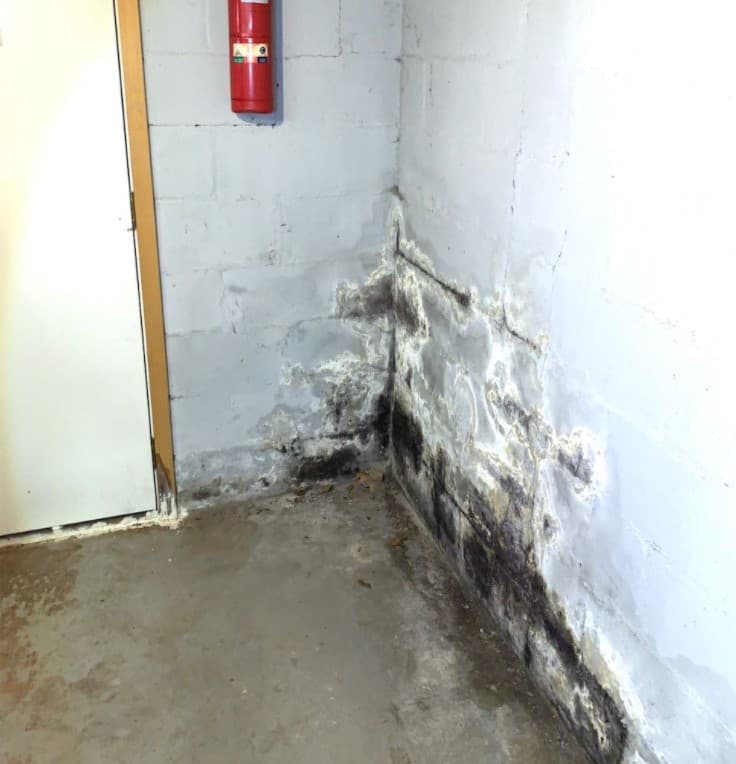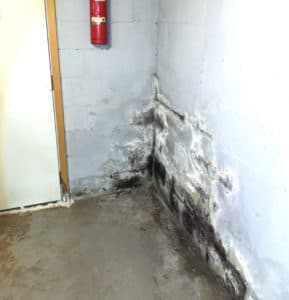
Originally posted 6/12/2018, updated 12/31/2020
You don’t want to walk downstairs one day, and find water in your basement. That’s the sort of discovery that can ruin anyone’s day! But if that water has damaged your home and possessions, it’s going to be expensive as well as frustrating.
Acculevel is a foundation repair company that specializes in basement waterproofing. Founded in 1996, we are a family-owned and operated company. Our goal is to help homeowners protect and maintain their homes, so that everyone has a safe and healthy place to live. We provide free estimates to customers. During those appointments, we’ve noticed that many people ask about insurance coverage; they’re often unsure if they can file a claim to cover the costs of waterproofing and flood-related damages.
Since we’re not an insurance company, we relied on our own insurer (Blevins Insurance) to help us tackle this particular topic. In this article, we’re going to explain when homeowners insurance will cover basement water damage, if you need additional coverage, and what you can do to prevent your own basement from flooding.
A word of caution: while we wholeheartedly recommend contacting your insurance agent with questions about your policy and coverage, there can be unintended consequences.
On a few occasions, a customer has checked with his/her insurance agent about covering a specific problem. The agent came to the home, did an evaluation, then told the customer it wasn’t covered. But now that the insurance carrier knew about the existing problem, if the customer didn’t repair the issue within a given time, they would drop their insurance coverage. Our advice? If possible, call and update your insurance before you have any issues to resolve.
If the flooding is due to an unexpected event, the damages are generally covered, but the repair is not. If your washing machine busts a gasket or valve, and the basement floods, your homeowner’s insurance will cover repairs or replacement costs for drywall, furniture, etc. But the cost to repair your washing machine is your responsibility.
Similarly, if you have a pipe burst, the damage to your belongings is covered- but the plumbing bill is not. Be aware that if the pipe is damaged because it’s not properly insulated, installed, or well-maintained, the insurance company may be less likely to cover the expenses.
 This photo was taken by an Acculevel project manager during a free estimate appointment. Water has been seeping into the basement and feeding mold.
This photo was taken by an Acculevel project manager during a free estimate appointment. Water has been seeping into the basement and feeding mold.
If you do not have flood insurance, you are up the proverbial creek without a paddle. It does not matter if the flooding occurs because of sudden torrential rainfall, a breaking dam, or just a long rainy spring.
Flood insurance is only for natural events caused by weather. If your basement floods because the sewer backs up, the basement drain overflows, or your sump pump breaks? These are not flood events and aren’t covered by home insurance OR flood insurance.
For these issues, you have to separately purchase ‘sewer and drain’ coverage.
There’s no way to absolutely guarantee your basement won’t flood. (Mother Nature is unpredictable, even to the best meteorologists!) But here are five steps you can take to help prevent it from happening.
For additional questions about insurance coverage, you should consult with your own insurance agent. But if you have questions about basement waterproofing, we can help you with that! Our Basement Waterproofing Guide is designed to address all of the questions you may have about waterproofing, clearly and thoroughly.
[DISPLAY_ULTIMATE_SOCIAL_ICONS]